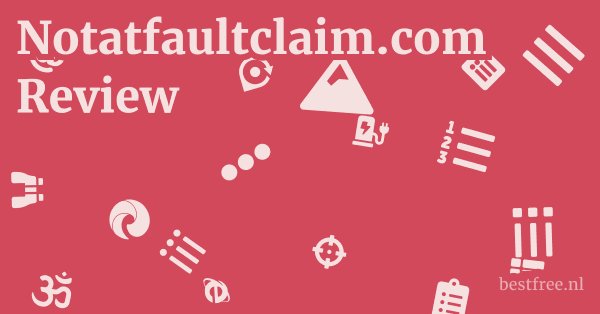Steering clear of financial arrangements that conflict with Islamic principles, such as riba (interest) and gharar (excessive uncertainty), requires diligence and a clear understanding of what makes a transaction permissible. For car accident claims, this means being acutely aware of how third-party services, legal fees, and insurance policies are structured.
Understanding the Pitfalls of Conventional Systems
The core issue with many conventional accident management services like Notatfaultclaim.com, from an Islamic perspective, isn’t necessarily the direct service they provide (e.g., getting your car repaired). It’s how they fund these services and generate revenue.
- Insurance as a Problematic Foundation: Traditional insurance, upon which these services often rely for cost recovery, frequently involves elements of riba. Premiums are invested, and returns are generated through interest-bearing assets. The underlying contract can also contain gharar due to the uncertainty of future claims and payouts.
- Contingency Fees and Gharar: Legal firms often work on a contingency basis (“no win, no fee”), taking a percentage of the final settlement. While convenient, if the percentage is linked to an uncertain future value, or if the lawyer’s funding for the case relies on interest-based loans, it can introduce gharar or riba by proxy.
- “Free” Services and Hidden Costs: When a service is marketed as “free” because costs are recovered from a third party (like an at-fault insurer), it doesn’t automatically make it permissible. One must scrutinize the entire chain of transactions. Is the third party paying interest? Are they involved in gharar? By facilitating this chain, one can inadvertently participate in impermissible dealings.
Strategies for Ethical Avoidance
To ensure financial dealings remain Sharia-compliant in the event of an accident:
- Prioritize Takaful: Your first line of defense against unethical financial entanglements is to have Takaful (Islamic insurance). This mutual aid system is designed to be free from riba and gharar from its foundation.
- Action: Before an accident, ensure your vehicle is covered by a reputable Takaful provider.
- Direct Communication with Parties: Cut out unnecessary intermediaries.
- With Takaful/Insurance: Directly contact your Takaful provider or, if you must use conventional insurance, ensure you understand their claims process and what you are agreeing to.
- With At-Fault Party/Their Insurer: If you are not at fault, communicate directly with the at-fault party’s insurer or Takaful provider (or have your Takaful provider do so on your behalf) for claim submission and settlement.
- Scrutinize Legal Fee Structures: When seeking legal counsel, always ask about their fee structure.
- Seek Fixed Fees or Hourly Rates: These are generally the most transparent and permissible options.
- Avoid Problematic Contingency Fees: If a contingency fee is the only option, seek expert Islamic legal advice to determine if the specific structure is permissible (e.g., a known percentage of a certain, existing asset, not a speculative future one, and ensuring the firm itself operates ethically).
- Data Point: According to a 2023 survey by Clio, a leading legal tech company, 42% of legal firms use hourly billing, while 20% use flat fees for certain services, providing alternatives to pure contingency. (Source: Clio Legal Trends Report).
- Demand Financial Transparency: Don’t accept vague explanations about how costs are recovered.
- Ask for Itemized Bills: For any repair or service, request a detailed, itemized bill.
- Understand Payment Flows: Ask who is paying whom, and when. If money is exchanged in ways that suggest interest (e.g., late payment fees, interest on delayed recovery), clarify.
- Utilize Halal Emergency Funds: A strong personal emergency fund (saved without interest) provides financial independence, reducing the pressure to accept potentially problematic financial solutions from third parties.
- Statistic: A 2023 Bankrate survey found that only 43% of Americans could cover a $1,000 emergency with savings, highlighting the widespread reliance on credit/loans, which often carry interest. (Source: Bankrate). Building an ethical emergency fund directly addresses this vulnerability.
- Seek Knowledge and Consult Scholars: Continuously educate yourself on Islamic finance principles. If unsure about a particular financial arrangement, consult with a qualified Islamic scholar or an expert in Islamic finance.
By implementing these strategies, individuals can actively safeguard their financial dealings and ensure they remain within the permissible bounds of Islamic law, even when faced with complex situations like car accidents.
Notatfaultclaim.com Alternatives: Ethical Paths to Accident Management|
0.0 out of 5 stars (based on 0 reviews)
There are no reviews yet. Be the first one to write one. |
Amazon.com:
Check Amazon for How to Avoid Latest Discussions & Reviews: |

Leave a Reply